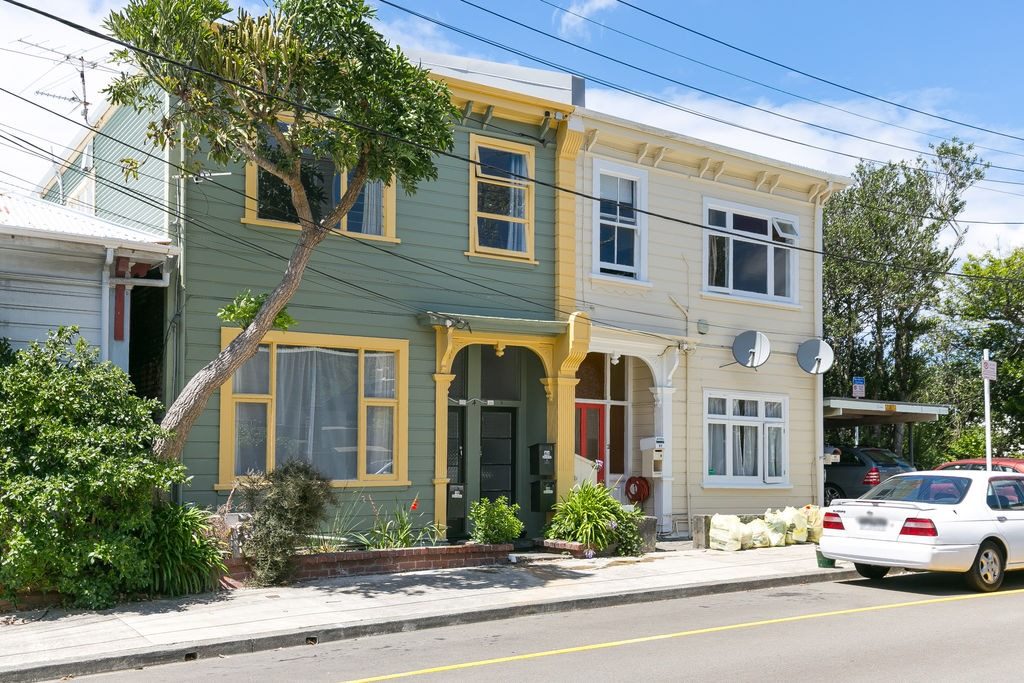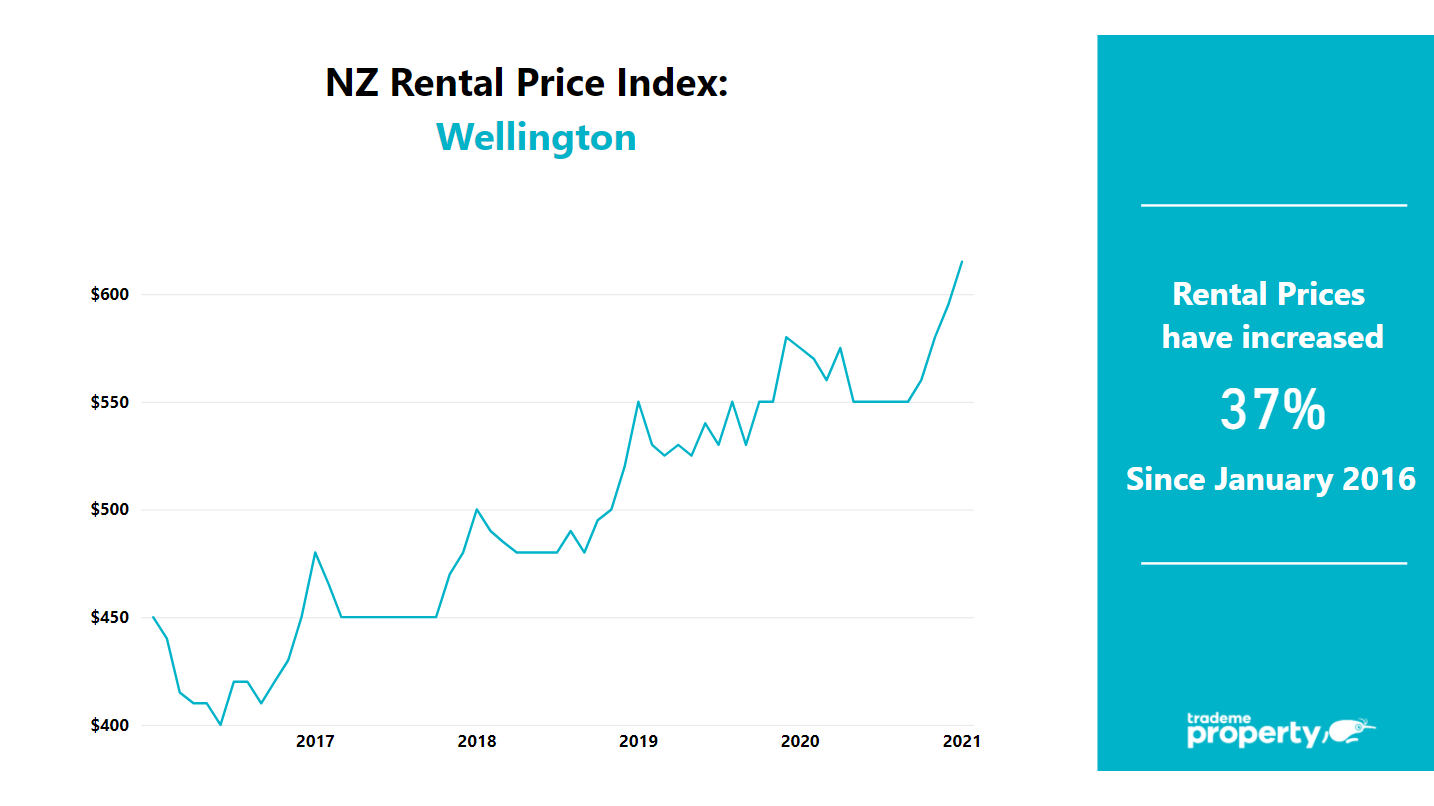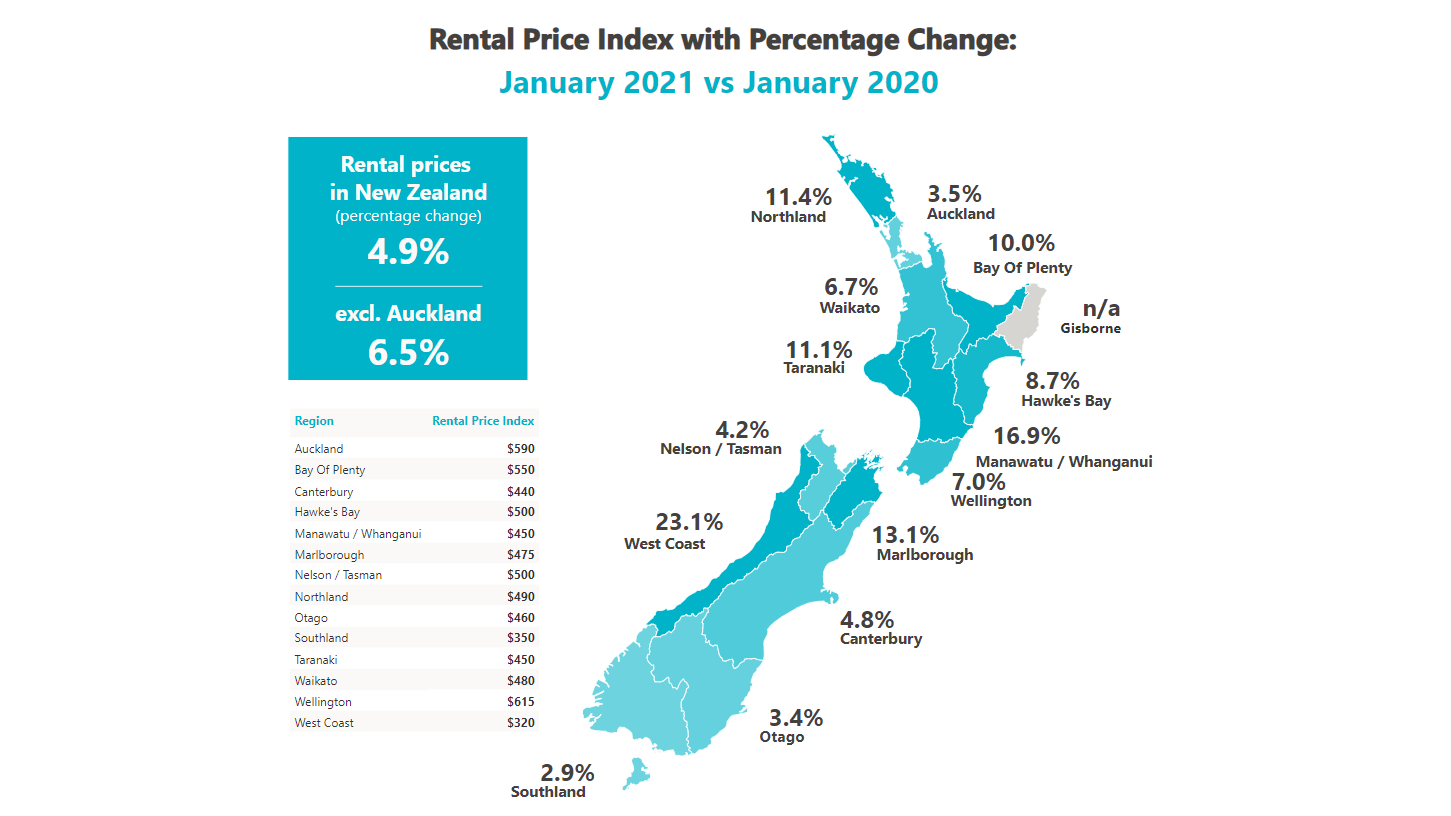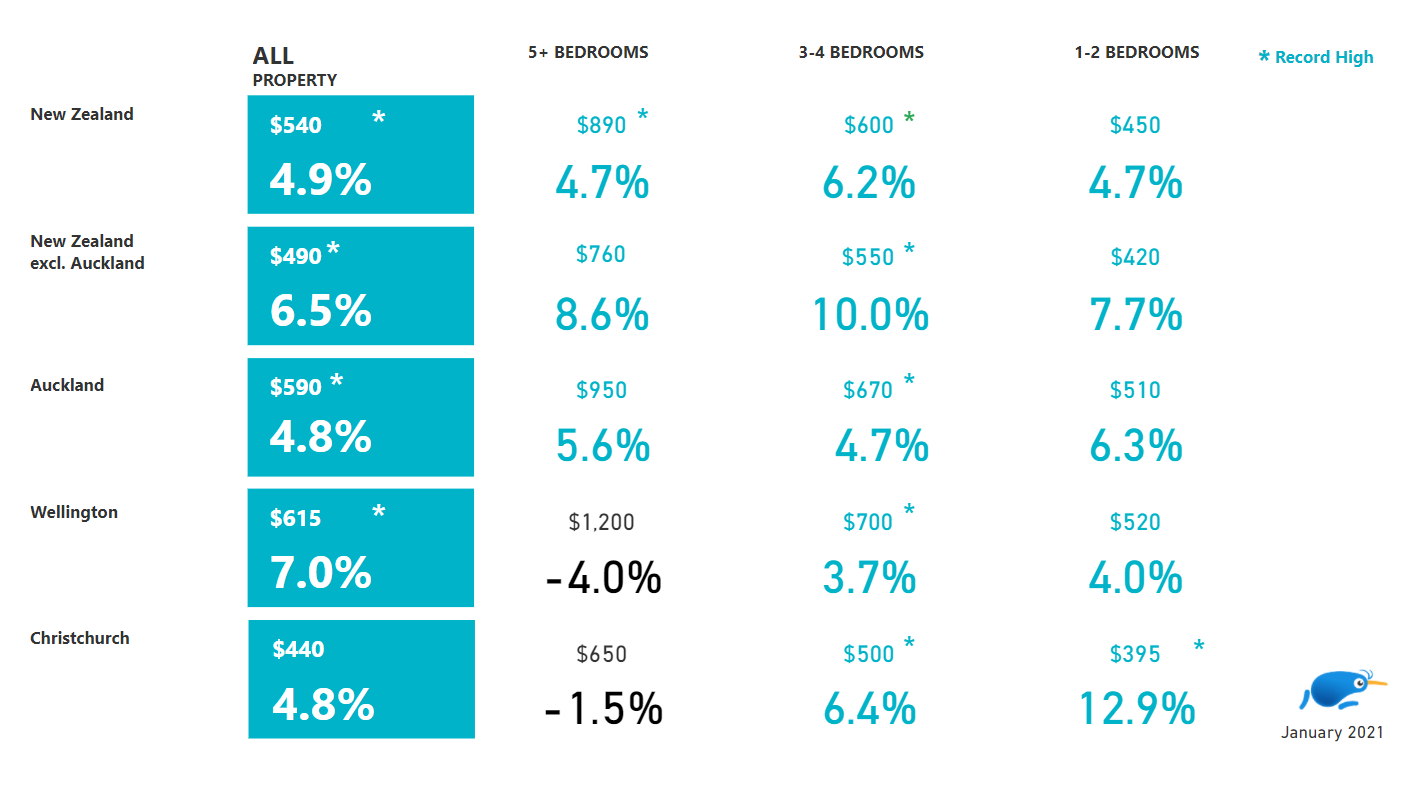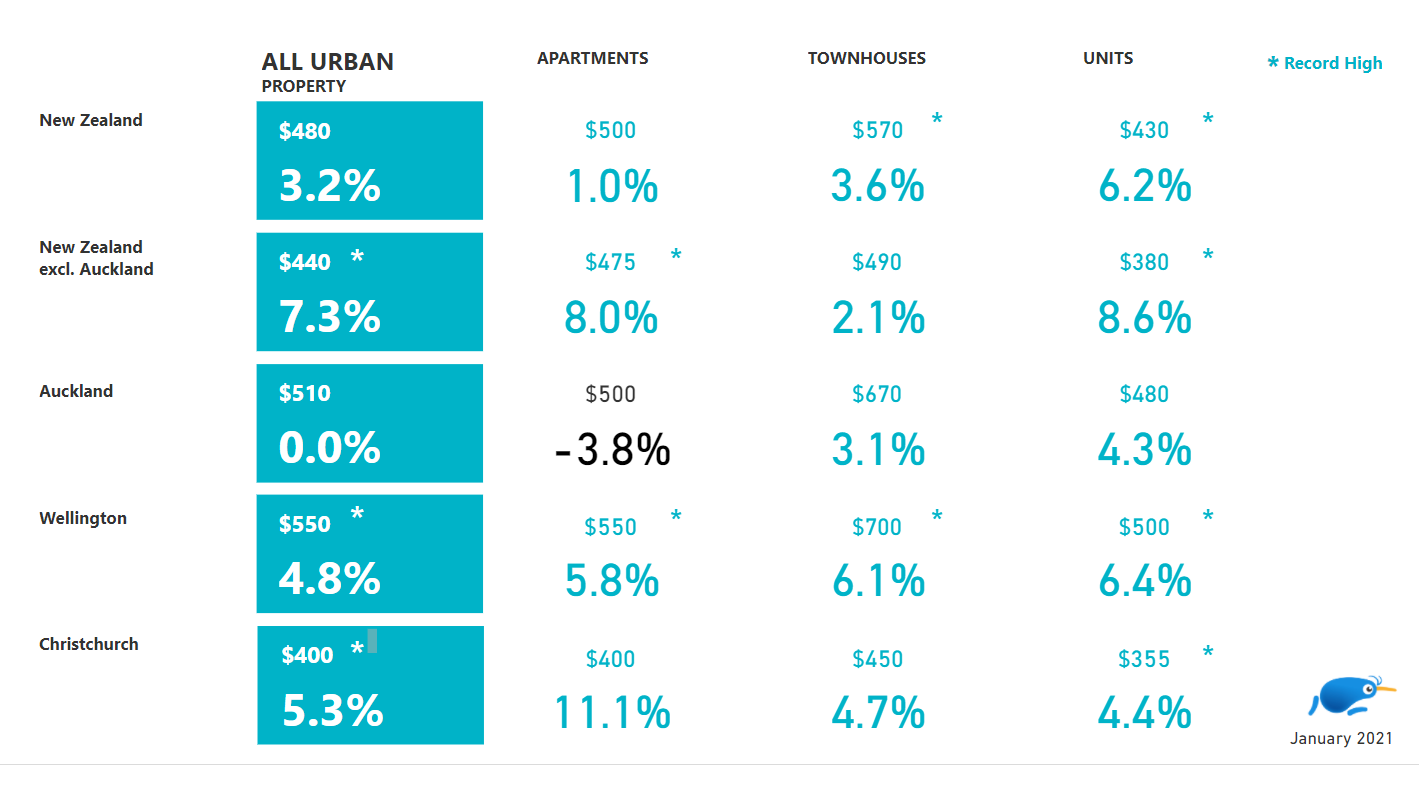News Next article
Rental Price Index - January 2021
Wellington’s rental market kicked off 2021 with a bang.
11 February 20214B Percival Street, Te Aro, Wellington
National rent hits new high
Rents in Auckland climb to new record
| District | Median weekly rent | ||
|---|---|---|---|
| North Shore City | North Shore City | $630 | $630 |
| Rodney | Rodney | $590 | $590 |
| Papakura* | Papakura* | $590 | $590 |
| Waitakere City* | Waitakere City* | $580 | $580 |
| Manukau | Manukau | $580 | $580 |
| Franklin* | Franklin* | $580 | $580 |
| Auckland City | Auckland City | $575 | $575 |
Bigger houses popular
Units the most popular urban property
Other news you might like
